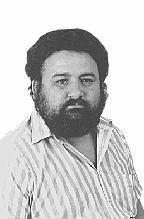
Peter Espeut When I returned to the island last week from my eastern Caribbean adventure with LIAT and Caribbean Airways, I sat on my luggage at Norman Manley International Airport waiting for my wife to collect me. I observed closely a young special constable on duty, guiding motorists to legally stop and collect their family and friends with their luggage.
The most common infringement of the law he had to deal with was cars stopping in the pedestrian crossing, which blocked pedestrian traffic. I was close enough to overhear; he would go up to each offending motorist and politely ask them to either go forward or reverse to leave the pedestrian crossing free. And they all complied - except one.
This motorist told the young special constable not to worry, because he (the driver) was a policeman; he continued to place luggage in his car and board his passengers, totally ignoring the young special constable. He was in plainclothes, in an unmarked car (which could have been his private car) and had his gun visibly in his waist.
Public abuse
I went over to the driver and introduced myself (he recognised me anyway) and asked him whether he believed that because he was a policeman he could disobey the law. He then proceeded to publicly abuse me at the top of his voice, accusing me of defending criminals and attacking the police. Why, he asked, did I choose to question him, a policeman, instead of the dozens of others who were breaking the traffic regulations in front of my eyes? I tried to explain that I expected him as an officer of the law to set a good example, but he went on and on in the same vein, and he challenged me to go ahead and write anything I wanted (even though I had not offered to write anything); I have accepted his challenge.
After completing his business during his tirade, he finally got in the car, and drove out of the pedestrian crossing and out of the airport.
I was embarrassed, not so much for myself (the abuse from the rogue cop drew more negative attention to himself than to me), but forthe young special constable who had been trying to do his job to the best of his ability. The rogue cop had committed at least two offences: the original offence, and disobeying the order of a police officer; but of course, in my view, he was also guilty of corruption, because he clearly claimed that because he was a policeman, it was OK for him to break the law that "ordinary" Jamaicans have to obey. Instead of being careful to set a good example by obeying the law, he was openly and vociferously setting a bad example to the public by breaking the law and refusing to obey the young constable; and what is worse, he was setting a bad example to the young special constable of how policemen should behave. I was grateful that he did not draw his firearm.
'Police don't arrest police'
The other thing this rogue cop was saying to the young special constable was, "I am a policeman, and policemen must always let off other policemen when they are caught doing something wrong". Another policeman explained it to me some years ago: "Police don't arrest police", he said. This is why I believe that only a separate entity will ever be able to successfully prosecute police abuses, for as a recent Jamaican Prime Minister is alleged to have said, "A corrupt police force cannot investigate corruption".
Recently, I had a conversation with a decent policeman who informed me that the full nature and extent of police corruption has not yet come to light. I had no difficulty believing him!
Peter Espeut is a sociologist and is executive director of an environment and development NGO.
